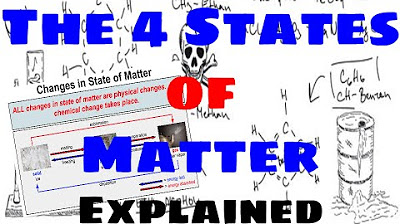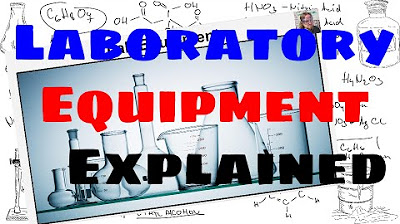Ultimate 13 Colonies Review (Ace Your Test in 10 Minutes!)
Summary
TLDRIn this educational video, Mr. Betts offers a rapid-fire review of key points in colonial America, perfect for students facing an imminent test. He covers the first English settlements, the significance of tobacco as a cash crop, the establishment of the House of Burgesses, and the diverse motivations of different colonial groups. The video also touches on the geographical layout of the colonies, conflicts with Native Americans, the impact of the Great Migration, and the economic and religious diversity of the colonies. Mr. Betts concludes with a brief mention of the Salem witch trials, the Great Awakening, and the Iroquois Confederacy, providing a comprehensive snapshot of colonial America's complex history.
Takeaways
- 🏰 The first English colony in the New World, Roanoke, failed in 1587, while Jamestown became the first successful English settlement in 1607.
- 🌱 Tobacco became a major cash crop in the Virginia Colony, leading to its prosperity due to high demand in Europe.
- 👥 The Mayflower Compact was a document created by the Pilgrims in 1620, pledging loyalty to the King and establishing self-government.
- 🍁 The New England colonies, including Massachusetts, were known for rich forests, rocky soils, and good harbors, which facilitated trade.
- 🌾 The middle colonies, like New York and Pennsylvania, were known as the 'breadbasket colonies' due to their agricultural productivity, especially in wheat.
- 🏛️ The southern colonies had a warm climate, were agriculturally focused, and were predominantly Anglican, with significant cash crops like indigo.
- 🚢 The triangle trade involved the exchange of raw materials from the colonies to Europe, manufactured goods back to the colonies, and slaves from Africa.
- 📜 The Navigation Acts were a series of laws by England to control colonial trade, requiring the use of English ships and sale of goods only to England.
- 🔮 The Salem witch trials in 1692-1693 resulted in the execution of 20 people and highlighted the strict and intolerant nature of Puritan society.
- ✝️ The Great Awakening in the 1720s and 1730s was a religious revival that led to a rededication to Christianity and increased religious diversity.
Q & A
What was the first attempt at an English colony in the New World and what happened to it?
-The first attempt at an English colony in the New World was in 1587, known as Roanoke. It failed so miserably that the fate of the colonists remains unknown.
Which colony is credited as the first successful English settlement in North America?
-Jamestown, established in 1607, is recognized as the first successful English settlement in North America.
What was the significance of John Smith's leadership in Jamestown?
-John Smith's leadership was significant because he implemented the rule 'you don't work, you don't eat,' which helped the colony survive and prosper.
What is a cash crop and how did it contribute to the success of the Virginia Colony?
-A cash crop is a crop grown to be sold rather than consumed. Tobacco, being a cash crop, was grown and sold by colonists like John Rolfe, contributing significantly to the Virginia Colony's success.
What was the purpose of the Mayflower Compact, and why was it created?
-The Mayflower Compact was created by the Pilgrims in 1620 to pledge their loyalty to the King of England and to each other, and to establish a civil body politic for self-government in their new colony.
Who was Squanto and how did he help the Plymouth Colony?
-Squanto was a local Native American who taught the Pilgrims of Plymouth Colony how to use the land, which was crucial for their survival and success.
What does 'a city upon a hill' mean in the context of the Massachusetts Bay Colony?
-In the context of the Massachusetts Bay Colony, 'a city upon a hill' refers to the Puritans' belief that they would be an example for the rest of the world, reflecting their self-righteousness and high moral standards.
What was the Great Migration and what was its impact on the English colonies?
-The Great Migration was a massive movement between the 1620s and 1640s where about 50,000 Puritans left Europe for the New World, mainly the English colonies, significantly increasing the population and influencing the cultural and religious landscape.
Why was Rhode Island founded and what was unique about its founding?
-Rhode Island was founded by Roger Williams, a Puritan minister, after he was expelled from Massachusetts for advocating religious tolerance and fair dealings with Native Americans. Its founding was unique due to its commitment to religious freedom.
What was the significance of the Fundamental Orders of Connecticut?
-The Fundamental Orders of Connecticut was the first written constitution in the colonies, setting a precedent for self-government and the rule of law.
What was the role of the triangle trade in the colonial economy?
-The triangle trade played a significant role in the colonial economy by facilitating the exchange of raw materials from the colonies to Europe, which were then turned into manufactured goods and either sent back to the colonies or to Africa for slaves and other goods.
What were the Navigation Acts and how did they impact the English colonies?
-The Navigation Acts were a series of laws in the mid-1600s that required colonists to use only English ships and sell their raw materials exclusively to England. This was intended to protect England's wealth and power, but it also led to resentment among the colonists.
Outlines

このセクションは有料ユーザー限定です。 アクセスするには、アップグレードをお願いします。
今すぐアップグレードMindmap

このセクションは有料ユーザー限定です。 アクセスするには、アップグレードをお願いします。
今すぐアップグレードKeywords

このセクションは有料ユーザー限定です。 アクセスするには、アップグレードをお願いします。
今すぐアップグレードHighlights

このセクションは有料ユーザー限定です。 アクセスするには、アップグレードをお願いします。
今すぐアップグレードTranscripts

このセクションは有料ユーザー限定です。 アクセスするには、アップグレードをお願いします。
今すぐアップグレード関連動画をさらに表示

The Four States of Matter - Explained

Lab Equipment - Explained

3. Gr 11 Life Sciences - Population Ecology - Theory 3 Mark Recapture Method

4. Gr 11 Life Sciences - Population Ecology - Worksheet 1

PENJASKES KELAS X - SOFTBALL

Introduction to Culture [AP Human Geography Review Unit 3 Topic 1]

Menentukan Mr ( massa molekul relatif )
5.0 / 5 (0 votes)
